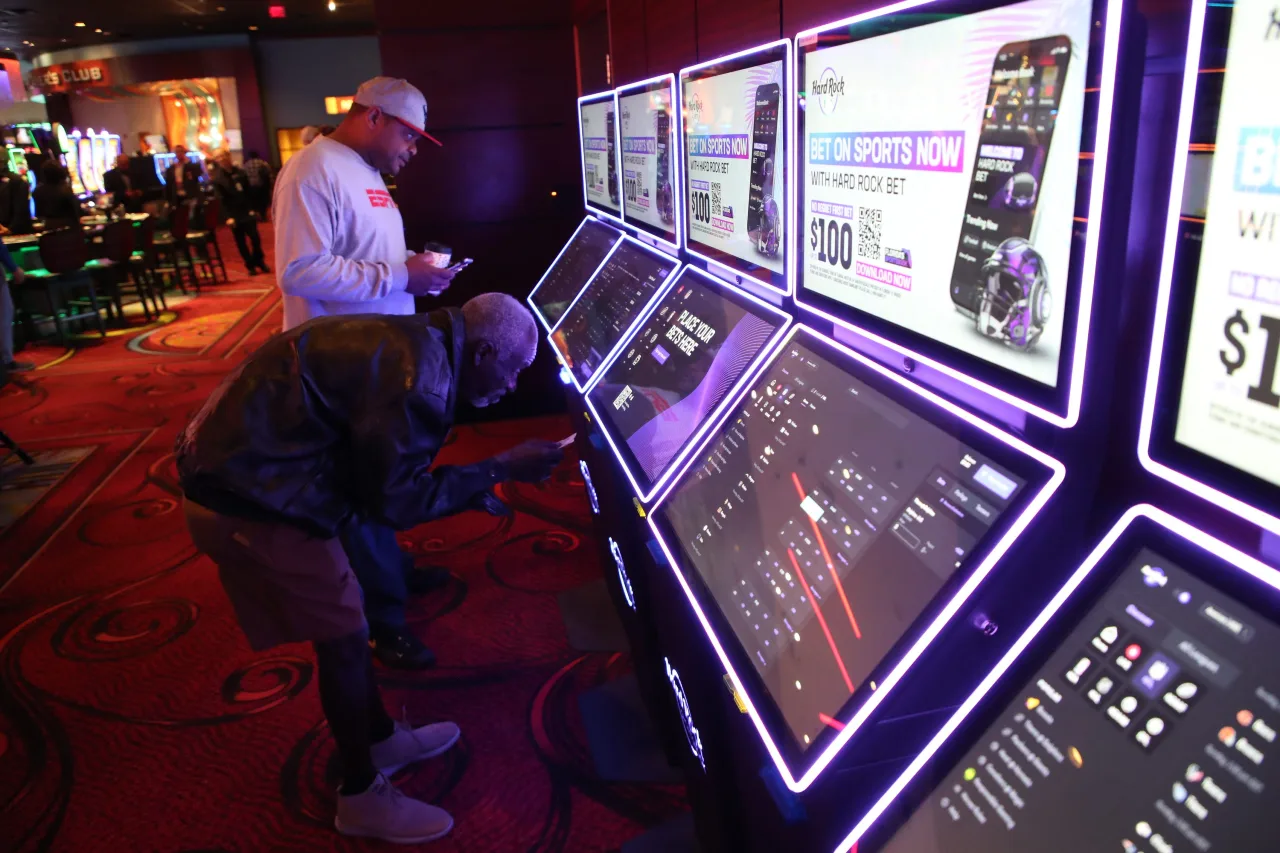Content on this page may include affiliate links. If you click and sign up/place a wager, we may receive compensation at no cost to you.
Eight states resist mobile sports betting despite growing trend
Explore the eight U.S. states that only allow in-person sports betting and the reasons behind their resistance to legalizing mobile wagering.

The scenario is the same in virtually all of the U.S. states that have legalized both online sports betting, as well as the same endeavors in-person at casinos, racetracks or other facilities.
That is, at least 90% of the handle – or amount wagered – comes via the online route, as consumers enjoy placing wagers in the comfort of their own homes, or while they are out visiting with family or friends.
However, the scenario is different in eight states that allow only in-person betting. There have been efforts in some of those states to change this situation, but none have yet succeeded.
The latest “miss” came in Nebraska, where earlier this month a special legislative session ended without approval of a measure to add mobile sports betting revenue to the menu. The sales pitch was to put any tax revenue generated by the new gambling toward property tax relief for state homeowners.
So Nebraska remains on the sidelines in this respect along with Wisconsin, Mississippi, Washington, North Dakota, South Dakota, Montana and New Mexico.
It is worth noting that with the exception of Mississippi, each of these states historically has been late to legalizing any gambling – and often only reluctantly. The sentiment tends to be that locations that already offer legal gambling don’t do any additional harm by adding sports betting and online sportsbooks to the menu.
Low populations are common among these “holdouts”
Each of the latter four states listed above is among the 10 least-populated of the 50 states, and Mississippi and Nebraska are not in the top 35, either. That is relevant because with such small populations and with few, if any, ranked as leading U.S. tourist destinations, the amount of potential tax revenue isn’t large enough to potentially sway a wavering lawmaker toward chasing a significant amount of money.
Washington, the 13th most-populated state, and Wisconsin (No. 20) are unusual in that they are the two states among the eight that have multiple major professional sports teams. Those franchises often have significant political power in statehouses, and in the six years since a landmark U.S. Supreme Court ruling opened the door for any state to legalize sports betting, pro sports teams that once opposed such betting now embrace it with open arms as a new source of funds.
Each state has its own unique set of circumstances.
Nebraska, for instance, has retired member of Congress and legendary former college football coach Tom Osborne out front as being dead-set against mobile sports betting. As long as the popular 87-year-old Osborne is involved, legalization efforts appear to be doomed.
Dominant sports betting operator DraftKings just announced an agreement with the Lac du Flambeau Band of Lake Superior Chippewa Indians to open a sportsbook at the tribe’s Lake of the Torches Resort Casino. But the casino is located in northern Wisconsin, nearly 300 miles north of the vast Milwaukee-area population in the state, so the deal is not likely to greatly improve the chances for mobile sports betting in Wisconsin.
Washington does not even allow daily fantasy sports play and, similar to Wisconsin, there is a significant native American influence that for now has a monopoly on sports betting on their tribal land. So no change appears likely there, either.
One state doesn’t seem like the others in resisting adding mobile sports betting
Mississippi, given its gaming history, could be the most likely of these eight states to legalize mobile sports betting. Casino operators were first permitted there way back in 1990, making Mississippi one of the first states to join Nevada and New Jersey in that respect. In-person sports betting, meanwhile, was adopted in 2018 just three months after the Supreme Court ruling.
The obstacle in this state is the casino operators in the resort destinations of Biloxi and Tunica. With all forms of legal betting being on a limited basis throughout the South, those operators draw heavily from a large region of customers who enjoy making the occasional sports bet, spin of a slot machine or roulette wheel, or a roll of the dice in craps.
Montana is unique in that sports bets can be placed not only at casinos, but also at hundreds of bars and taverns across the large state. Those industries appear to be successful in discouraging any discussion of mobile sports betting in that lightly-populated state.
Finally, North Dakota only allows for sports betting at tribal casinos, while South Dakota restricts the gambling to tribal casinos and to the commercial casinos in the resort town of Deadwood.
While the reason for opposition to mobile sports betting in these states clearly varies, the resistance is both consistent and potentially long-lasting.